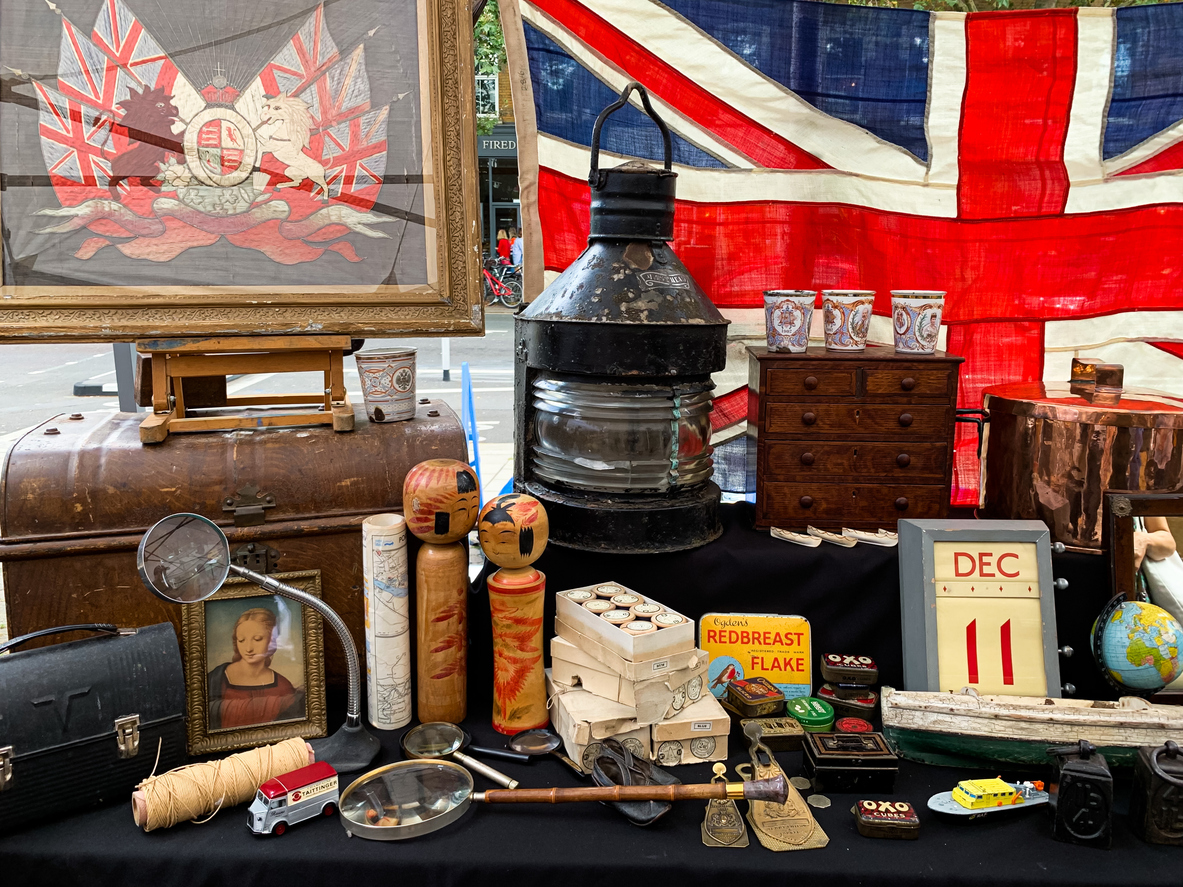Antique shops are melancholy places. The deep leather armchairs, Anglepoise lamps and bamboo bookshelves. They ask questions: who sat, worked or read using these? Banal questions, possibly, but life is generally banal, and no less poignant for that.
It’s not an unpleasant sort of melancholia. Quite the opposite. If I had to create a word to describe the feeling, I’d say it was melanphoria: ‘a state of intense excitement arising from a feeling of deep sadness’. One feels both a nostalgia for the lives of strangers and a sense of life’s possibilities. If this is abnormal, I would ask any amateur psychiatrists to write to The Spectator offices.
I am physically unable to go into any antique shop without buying something. It is rarely a grand purchase. My Ealing flat is not filled with exquisite objets d’art, and I will never be mistaken for a latter-day Bruce Chatwin. My collecting is modest. My first search is always for good-value Folio Society volumes, first-edition Simon Raven hardbacks, or prints of old tobacco advertisements (‘Give a man a Lucky, man-size flavour… man-size satisfaction… that’s Lucky Strike’ are particular favourites).
You gain a small slice of time when you buy antique furniture or a second-hand book. Not just the object, with all those unanswered questions, but also your own memories, triggered whenever you take the antique from its place on the shelf. I look at my bookcases and can remember exactly where I was when I bought almost every book. Goodbye to All That (Dulverton, Somerset), Places Where They Sing (World’s End, Chelsea). I admit I can’t remember where I was when I finished all of the books cluttering my flat; I can confidently say that The Oxford Book of Work (Putney Bridge) can rest easy for now.
One of my favourite antiques wasn’t even purchased. It was given to me by an Aberdonian antique dealer on my first visit to the French House in Soho. A naïve and not especially flush twenty-year-old, I’d been glad of his offer to buy me a drink. A bottle of shared wine later, he gave me a recently purchased escape compass, issued to parachutists prior to D-Day to help them reach friendly lines in the event that they were unable to reach their units after landing. Fortunately, I was later able to use my new compass to direct me south to a friend in Clapham, with the Northern line taking the place of Polaris.
The antique shop that remains most vivid in my mind is in Victoria Falls, Zimbabwe. It had no sign – indeed, it was hardly a shop at all. More a loose collection of forgotten items, left behind by various Europeans since 1979. It was full of reminders of an England that they had brought with them and that had probably vanished while they were in Africa: heavy oak tables, the colour fading in the African heat; books by Dickens and Trollope, pages wilting in the humidity; gilt frames containing English pastoral scenes, gloriously out of place. All of this was overseen with proprietorial pride by a Ndebele woman who seemed pained by the idea of anything being bought. I settled for a battered copy of Mukiwa by Peter Godwin, and the sense of ‘Time past and time future, what might have been and what has been, point to one end, which is always present’.








Comments